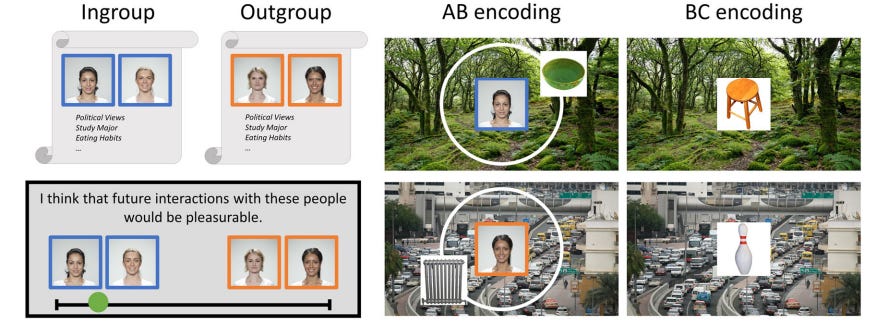On Monday, I mentioned that our social environment (i.e. family and friends) influences our attitudes towards sustainable investments. More broadly, we know that our friends influence our investment decisions. But our memory? Surely there is no peer pressure on our memory.
If you think our memory is an accurate and fixed representation of past events like a videotape, family and friends influencing memory may sound outlandish. But this view of our memory is as outdated as it is wrong.
Instead, there is ample evidence that memories are not saved in our brains but reconstructed whenever we need them. This is a very dynamic and highly flawed process and prone to a lot of errors. If you are familiar with the work of Elizabeth Loftus (and if you aren’t you should read up on her), you know that people can implant false memories in other people with relative ease, particularly if they are trusted members of their social circle. Indeed, our memories are so flawed that the value of eyewitness testimony in court trials is by now much diminished because we know how unreliable such testimonies are.
Three psychologists from the University of Lund in Sweden showed that one can influence memories even with perceived friends that one has never met.
In three experiments with between 50 and 80 volunteers, they showed them the faces of a group of people together with information about their preferences, political leanings, etc. Then, they asked the volunteers to rate how much they would like them in personal interactions. The people they chose would then form a team with the volunteers. Note that the volunteers never met these people and for all I know, these people aren’t even real.
After this ‘team-building’ the volunteers were then presented with objects that were associated with other people (either teammates or people from a different team). Finally, a second object was shown to the volunteers with the same background as the first object and the person presenting it (see chart below for a description).
Experimental procedure
Source: Boeltzig et al. (2023)
Then, after a little distraction, the volunteers were asked to recall some of the objects that were presented to them and by whom it was presented to them. The chart below shows the accuracy and confidence in their memories split between objects presented by a virtual team member and a member of another team.
Memory accuracy, recall time, and confidence
Source: Boeeltzig et al. (2023). Note: AB and BC denote priming exercises to create memories and associations. AC denotes the recall of these associations and memories.
If an object was presented by a member from a different team, the accuracy of recall was significantly lower and the confidence in the recall was also significantly lower. Further examination of the results showed that what happened is that when an object was presented by a team member, volunteers had a much easier time remembering that object than when it was presented by a member of another team.
This indicates that team members and people of trust break down walls and get a shortcut to the memory of a volunteer. Members of different teams are viewed with more suspicion and thus their actions are remembered less well and less accurately than the actions of a team member.
And I think you can guess about real-life applications of these results. We live in a world where every one of us is a member of a tribe, be it a political tribe a religious tribe, a social media network, etc. We might think that we can remember what these people did and what people of other tribes did and said in the past. But as these experiments show, we are more accurate in remembering what the people in our tribe said or did than what people who are not on our team said or did. And this is essentially what misinformation and disinformation exploits. Because your memory is less accurate for people in another tribe, it is easier to make you believe they said X or did Y.






I must remember to remind my older friends that when we were at school I was the best at rugby, cricket and football and that I also got A+ in all the exams.
Hopefully since we are in the same social group they will "remember" this and tell other people of my brilliance.
Unfortunately you will remember planting this false memory much longer than they will remember it!